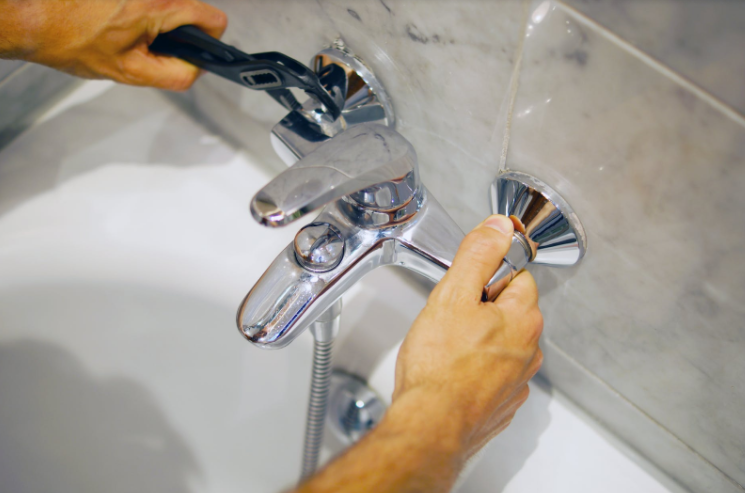 Having your septic system well-maintained could bring several advantages, mainly because it’s environmentally friendly. It’s good for the environment since sewer lines have higher risks of leakage, while septic tanks have lesser risks of leakage because it isn’t connected to these lines. A septic system is also low maintenance and only needs regular pumping every 3 to 5 years.
Having your septic system well-maintained could bring several advantages, mainly because it’s environmentally friendly. It’s good for the environment since sewer lines have higher risks of leakage, while septic tanks have lesser risks of leakage because it isn’t connected to these lines. A septic system is also low maintenance and only needs regular pumping every 3 to 5 years.
To fully ensure that your tank is working optimally, you will have to regularly inspect your septic system, since owners who don’t do regular inspections can never find out if their tanks are already showing signs of a failing system.
There are so many benefits of having a functioning septic tank, but how do we prolong its life?
What do Experts say in Taking Care of Your Septic Tank?
- Do a regular inspection and pumping
Everyone who has a septic tank knows the importance of regular inspection and pumping. According to the Environmental Protection Agency, an average septic tank should be inspected by service professionals every three to five years. However, pumps, electrical float switches, and mechanical components of the tank should be inspected at least every year, to ensure that there is no occurring issue with the functions of the tank.
For pumping, septic tanks can be pumped every three to five years as well, but some households pump yearly. All accumulated liquid and the solid matter should be removed from the tank before it builds up to the extent that it’s blocking the pipes where the water flows en route to the draining field. To know more about pumping septic tanks, click here.
- Use water wisely
The more water you save, the less liquid and other matter goes to the septic tank, which reduces the risk of straining the tank frequently. Using water efficiently also prevents the risk of a tank’s failure.
To help you save water, you might want to consider upgrading your water-devices into high-efficiency toilets, faucets, and showerheads. More often than not, using average toilets, faucets, and showerheads make you use more water than you need without even realizing it. High-efficiency water devices have flow restrictors, which help you conserve by allowing you to use the exact amount of water you need.
- Repair leaky faucets immediately
If you think leaky faucets don’t affect your water usage just because it only releases small water droplets, then think again. This mindset could lead you to a bigger water bill, and even if it seems like a small waste of water, water coming from leaky faucets might strain your septic tank if you neglect it for a long time. Don’t worry about the fees associated with repairing or replacing your leaky faucets, worry about the risk it can bring if you don’t fix your leaky faucets immediately.
- Don’t flush sanitary pads and tissue paper on your toilet
Most of the time, it can be tempting to flush sanitary pads and tissue papers on the toilet especially when you’re in a hurry, or when you’re just lazy to throw them to their proper place. A piece of friendly advice? Do not do this, no matter how tempted you are! Think of the consequences it will bring in the future.
Flushing anything other than human waste on the toilet is bad for your septic tank. Not only it may mess up your toilet’s flushing capacity, but it may also clog the tank. To prevent family members and visitors from flushing sanitary pads or tissue papers on the toilet, make sure that the trash bin is within arms’ reach from your toilet, where the user would not have to stand up to throw things on it. Or you can simply put a sign inside the bathroom to warn people from flushing anything other than human waste down the toilet drain.
- Stop using household chemicals that could damage your tank
Gas, motor oil, pesticides, antibacterial soaps, detergent, paints, acid, and other strong house cleaners should never go down the drain. Even if some of them are used for cleaning, they can potentially damage your septic system as they kill bacteria that help break down solids inside the tank, although this doesn’t mean to never use any cleaning products at all. You can always try better alternatives, the ones that are labeled as septic-safe products.
- Maintain your drain field
The septic tank and drain field are connected. If one is not working, then the other might not work as well. Take good care of your drain fields by diverting land water and the rain away from your drain field. Too much water pouring on it can slow down its process, which can strain the septic tank below.
On another note, no matter how wide your drain field is, do not use it for parking vehicles as this will cause soil compaction that can prevent the field from doing its job. This may also cause your drain field to lose evaporation of moisture from the surface, as well as breaking pipes.

No-Brainer Do’s and Don’ts for Your Septic System
Do’s
- Conserve water.
- Cover the drain field with a grass cover to avoid erosion.
- Keep your tank accessible for inspection and maintenance.
- Keep your tank’s lid closed and secured at all times, but still easy to open.
- Contact a professional you’re experiencing issues with the system that you do not know how to handle.
Don’ts
- Throw cigarette butts and ashes down the drain.
- Drive over the drain field.
- Flush non-decomposable materials such as hair, sanitary pads, diapers, and even flushable wipes.
- Build anything over the drain field.
- Plant anything on and around the drain field, as roots may clog the lines.
- Enter your tank no matter what happens. Gasses found inside the tank can easily cause unconsciousness.
Apart from the cost-related factors, taking care of your septic system the proper way can save you from all the trouble you can get from neglecting it. If you don’t want to go through all the process of replacing a septic tank, then make sure to maintain it properly. Who wouldn’t want to live in a worry-free house, right?
Become a Harlem Insider!
By submitting this form, you are consenting to receive marketing emails from: Harlem World Magazine, 2521 1/2 west 42nd street, Los Angeles, CA, 90008, https://www.harlemworldmagazine.com. You can revoke your consent to receive emails at any time by using the SafeUnsubscribe® link, found at the bottom of every email. Emails are serviced by Constant Contact








